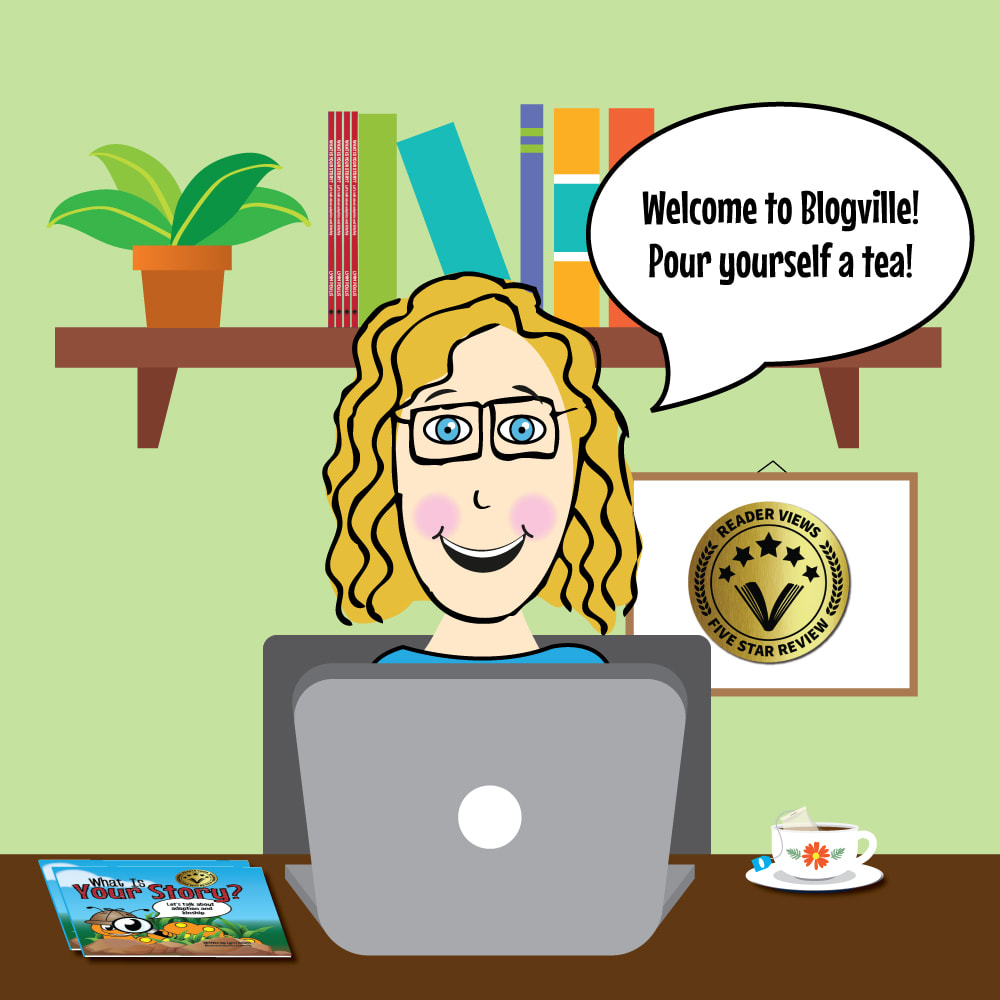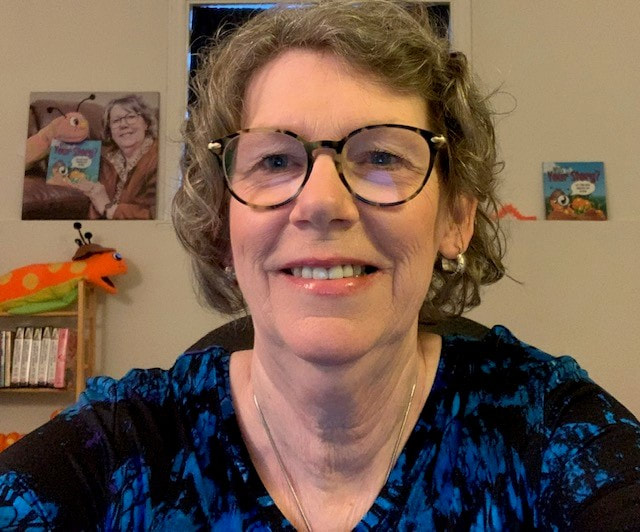|
Greetings my Blogville friends, thank you for joining me today. I’m sipping on a green tea this morning for its fat burning benefits. This is a long post today, you might want to steep a pot of tea. I will warn you dear friends I’m feeling pretty low and self-deprecating at the moment. Somehow, I always feel a little better when I share my thoughts with you, and I thank you for that. I’m also driven by the idea that someone else out there feels this way too and through my words they might see that they are not alone. Before I begin, I need you to know that this blog is not a judgement about weight or body type. It is about adoption trauma and lack of information. I mean no offence to anyone.
When I got my first non-identifying information report I was 22 years old and a new mom. That report gave my birth weight as 8 1/2 pounds, in those days that was considered a pretty big baby, and my discharge weight was 9 1/2 pounds. I remember thinking that was weird, I had gained weight in the hospital. As a new mom I had done a great deal of reading and learned that newborns typically lose some weight before they go home from the hospital. Not me!Remember, my adoptee brain is always looking for a reason why I might have been given up for adoption, some reasonable explanation. So it makes sense that as I read about my unusual weight gain as an infant I immediately defaulted to thinking perhaps that was why my birth mother left me, maybe I was too fat. Later, I would learn the reason for the unusual gain in my discharge weight was because I was almost a month old before someone from the agency came to get me from the hospital. Eventually I came to realize that my birth mother was long gone from the home for unwed mothers before I put on that extra pound. Unfortunately, I would not find all of that out for decades and had many years of associating abandonment with weight. As a young child I was underweight. I cannot tell you how many times my mom would tell people that no matter how much she fed me I never seemed to gain the proper amount of weight despite the fact that I had been such a big baby when I was born. I think there was a part of me that was grateful I was so skinny; a part of me that thought maybe if I was not too fat when she found me, my birth mother might take me home with her this time. Conversely, the moment I thought of her taking me away from my home I felt a deep, cold fear in my belly. Could she really take me away from mom and dad? I cannot fully explain the conflict I felt as a young, adopted child. I loved my parents wholeheartedly while at the same time I yearned to be accepted by my birth mother. It is honestly inexplicable, even to me. This is why I’m so committed to helping adoptive parents communicate with their children. I was afraid to talk to my mom because she always seemed hurt and afraid of my questions, like she had done something wrong. I loved her so much I never wanted to make that hurt appear in her eyes, yet I yearned for answers. I spent my adolescence as a very slender person. I was tall and thin with long fine hair that allowed my ears to poke out and wave at the world. I remember wondering who, between my birth parents, had the big ears gene? In an effort to minimize my height I developed awful posture and became quite round-shouldered. I mean it helped disguise the lack of boobs on my chest, so that’s was a positive I suppose. Being taller than my friends was a struggle but being slender still made me confident that my birth mother would accept me if she found me. Adolescence was quite difficult for me as my mom struggled to guide me. At that time I still believed that I was the product of a teen pregnancy and was afraid it might happen to me too, like some weird sort of inherited trait. I have mentioned before that my mom often warned me that a teenage pregnancy would result in an adoption plan. I don’t think she ever realized that she made adoption sound like a consequence, and that made me feel like I was a consequence of my birth parents’ bad behaviour. At the same time my mother would tell me how grateful she was when the agency called her about a baby girl and how excited she and dad were to finally get their daughter. I was torn, how could I be a consequence and a gift at the same time? Adoptive parents, talk to your children and youth about pregnancy and managing biological urges and peer pressures, instead of emphasizing that they should not follow in their birth parents’ footsteps. Honestly, adoptees are at no greater risk for untimely pregnancies than their peers are. I was a slender bride, and when we later had children, I got my “shape” back without much effort following their births. I was never self-conscious about my weight as an adult. As I matured I’m not even sure I noticed that I was not as thin anymore because I had always been pretty slender or at least average build. There was a day though, I cannot even recall how old I was, but let’s say I was ‘mature’, like over 40, when a friend came over to borrow a dress for some event she was attending. I gave her some dresses to try and, after trying one on, she suddenly exclaimed, “It’s too big on me! Omg it’s actually too big!” I was confused at her excitement until I realized that she meant I was fat. That was not her intention of course, but I was completely stunned. Now if you recall, I thought for a very long time that maybe my birth mother gave me up because I was fat! I was instantly insecure and suddenly overwhelmed by a fear of losing my loved ones, like I had lost my birth mother. I had not realized I was overweight because I’d never really been aware of changes to my body type until that moment (I think of it as my ‘anti-Kodak’ moment). That was the day when I looked down, when I looked in the mirror with my eyes open, and suddenly all I could see was my fat. For days after that event, I found myself taking a silent inventory of who I might lose now that I was ‘fat’. The strangest thing is that my reaction was not about my ‘mature’ weight gain, but about my earlier perception that my weight caused my birth mother to abandon me. The very idea of being abandoned by my loved ones terrified me. From the ‘day of the dress’ as I have come to think of it, I have never again been satisfied with my appearance and I avoid looking at pictures of myself, becoming self-deprecating. Sadly, this is what adoption trauma can do, it can cause extreme reactions to every day events, and reinforce any feelings of low self-worth. I know, I live it. This is why I urge adoptive parents to talk with their children, especially about the ‘why’ of their relinquishment story. Believe me when I say the ‘why’ in their mind is probably not anywhere close to the true story, and is likely a much worse scenario that wrongfully places blame on their infant or child selves. They need their truth, at developmentally appropriate stages of course. Trust yourself, you will know when it is the right time. I believe in my heart that children need to understand what happened in their pre-adoption story, even if they were placed with their adoptive parents at birth. They need to know what circumstances led their birth parent(s)’ to choose an adoption plan, and that it was not their fault. Their story needs to be told to them, of course keeping in mind their developmental level and their ability to understand the facts. I believe that society needs to be clear to children that the day they were born birth is, and always will be their birthday, a celebration of the anniversary of their birth, and that it was actually their birth parent(s)’ relinquishment day, not theirs. I also think clarification is in order, birth parents can not actually ‘give the child up’, because the reality is that they will always be the child’s birth parent. Birth parents actually ‘give up’ or relinquish their legal right to parent the child. That legal right to parent the child is granted instead to the adoptive parent(s), or sometimes their kinship parent(s). Speaking of being clear, most children are not consoled by a fantasy conception explanation such as ‘when a mommy and daddy fall in love yada yada and so on’. Adopted children are honestly not interested in the details of their conception, any more than birth children are interested in hearing about the details of theirs. Adopted children are more interested in what happened during the birth mother’s pregnancy and after they were born. Did they do anything wrong? Did they hurt her during their birth because they were a large baby? Was there anything that they could have done differently? Why didn’t their grandparents or aunts and uncles want them? In some cases their community and even their country let them go, why? Were they ugly babies, or fat babies, or did they cry too much? Be careful about saying things like ‘they loved you and wanted you to have good parents’, as it can be confusing later when you tell the child that you love them. Yikes! Are you thinking of giving them up too? Examine what you know about their birth parents’ adoption planning and phrase your explanations carefully. Consider statements like: Your birth mother wanted you to grow up in a family that was ready to parent. Your birth parents wanted you to have opportunities that they did not have, or felt they could not give you. When your children ask you questions about their birth families, try not to jump to conclusions about what information they are looking for. Instead, seek clarification with comments like, ‘Tell me more about what you want to know?’ ‘Are you asking how old a girl has to be before she can have a baby or before she can take care of a baby?’ Or even by asking directly, (but not defensively), ‘Why are you asking about this right now?’ as they might not even be asking what you think they are. I find adoptive parents often jump to the adoption topic when it is the last thing on their child or youth’s mind. Clarify, do not assume. Adoptive parents, this is not about your love or your family’s love for your adopted child. Your love is what gives them the confidence to ask their questions and face their own fears. Your love reassures them that they are lovable despite being let go by one family in order to be adopted by another, no matter why that happened. Birth families too, in any ongoing or future contact, need to make sure that their birth child, the adoptee, understands that decisions about the relinquishment of the birth parents’ right to parent them were made based on circumstance, not based on them as infants, children, or youth. They need to know that having to change families was not their fault! Phew, I warned you it was a long one. I have cried a lot writing these words. I write them so no adoptee should know the same pain, or if they do, that they know they are not alone. I write them so adoptive parents might gain some insight into what is going on with their child and to communicate with them. I write them so birth parents know their birth children deserve the truth about why they gave up their legal right to parent them. I believe that one of the best treatment tools for adoption trauma is communication. Let’s start talking! Speaking of communication, please remember that you can comment here, or for more privacy you can send me an email at [email protected] As always your comments give me the courage to keep blogging, thank you. See you back in Blogville in two weeks.
1 Comment
Loriann
1/30/2024 08:22:48 pm
Another amazing story, I can’t tell you how much I learn about you just in how you write and describe everything in such great detail ❤️❤️❤️❤️❤️
Reply
Leave a Reply. |
Read More
July 2024
Categories |



 RSS Feed
RSS Feed